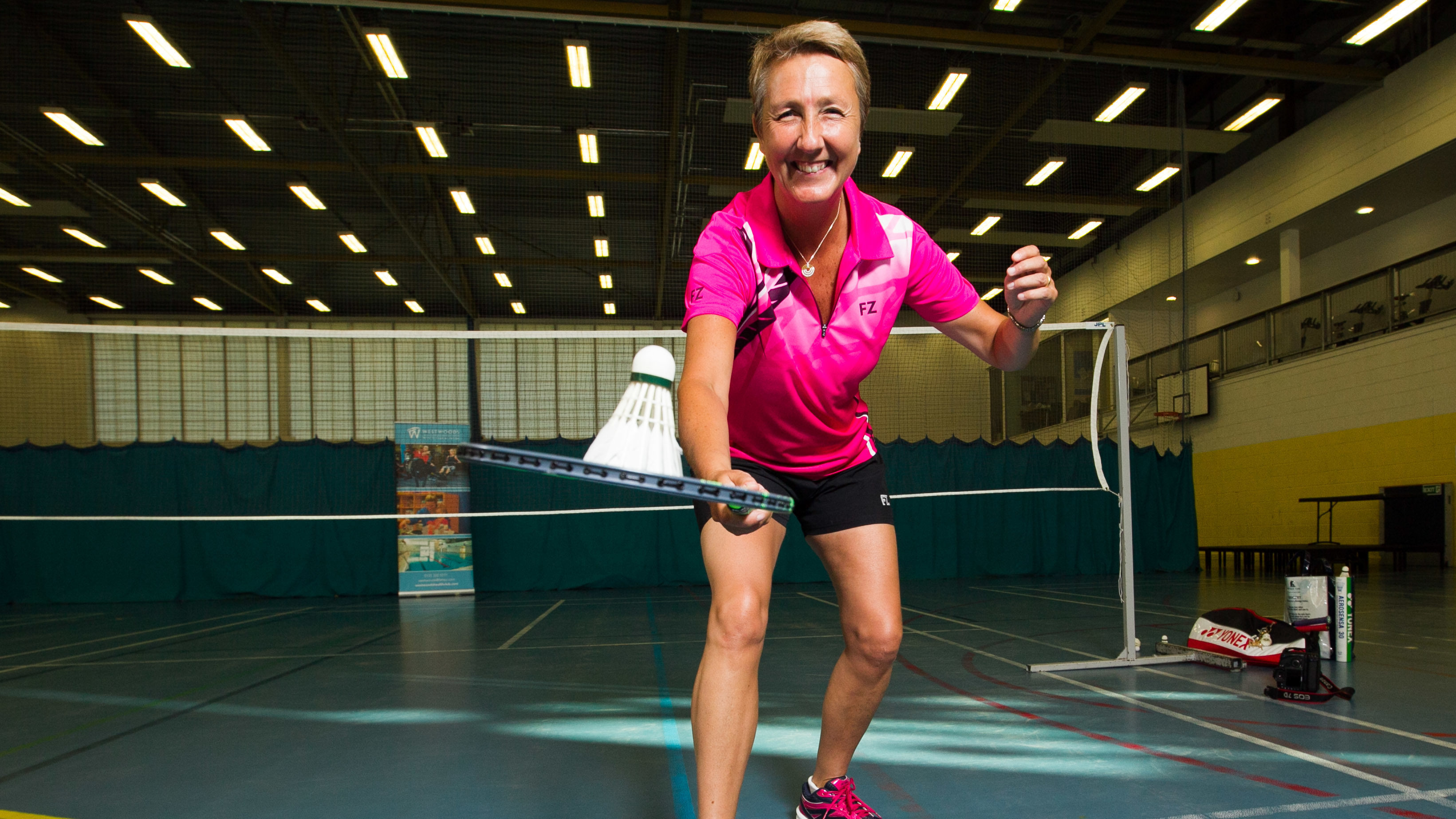
ARMY nurse Mary Wilson survived a Taliban attack on her life while waging her own battle with multiple sclerosis.
Now she’s fighting to become the first Scots woman to compete in badminton at the Paralympics when the sport makes its debut at Tokyo 2020.
The 54-year-old from Edinburgh was diagnosed with MS in 2004 and was forced to give up her 20-year career in the Army as a high-ranking psychiatric nurse eight years later.
Determined to not let her diagnosis hold her back, she found success as an athlete.
Since taking up badminton in late 2016, Mary has excelled at the sport but is worried her Paralympic dreams could be ruined by a lack of funding.
“In Scotland, para badminton doesn’t get any funding,” said Mary.
“Competing in international ranking tournaments is the only way to work your way up but we have to pay for everything ourselves. It’s not as inclusive as people think.”
Mary has medalled in 10 out of 11 major tournaments around the world and climbed to fourth in the world for her SL4 category.
She has to stay in the world top six by June 2020 to qualify for Tokyo, which she can only do by competing in international tournaments.
She has invested £18,000 from her Army pension fund and disability allowance to pay for all her training and physio, plus travel, accommodation and entry fees for international tournaments.
Mary recently secured vital support from Path to Success, a charity that champions sportswomen with disabilities. She will receive £3,000 annually for the next three years but requires more support to achieve her goal.
Mary trains in Edinburgh five days a week for two hours at a time. “I’m weaker on my left side. It affects my balance, coordination and memory,” she said.
“Fatigue also makes training and competing very difficult. I have to go to bed after I’ve trained and there are days when I can’t do it at all. It’s very frustrating.”
Path to Success founder, Anita Choudhrie, said: “Mary is a true inspiration. We hope this funding will help her realise her dream of competing in the Paralympics.”
Mary also receives huge support from her family, especially her partner of 15 years, Judi, who she lives with in Edinburgh with their German Shepherd, Max.
She says her time in the Army helped her find the strength and drive to cope with her MS diagnosis.
At 29 she joined the Queen Alexandra’s Royal Army Nursing Corps in 1993 and worked her way up to staff sergeant, serving in combat zones around the world, including Belize, Kosovo and Afghanistan.
She was diagnosed while in the Army. “It was terrible. I was in shock and cried for a day. I’d treated people with MS during my training. They were all bed-ridden, incontinent and had terrible muscle spasms. I decided that wasn’t going to happen to me.” It was at Camp Bastion, Afghanistan where she survived a Taliban attack on her life.
Mary said: “I was walking through the camp at night One of the local drivers decided to kill me. He drove at me with his truck.
“I dived off the road and fragments of metal and stone ripped through my combats up my left leg. Some were embedded in my buttock and went septic so they had to operate.
“There was only one ward and I woke up next to a different Taliban fighter. That was a surprise and so surreal. Having a guy next to me who may well have killed one of my friends was tough.”
Mary retired in 2012 after failing to meet new weapons handling regulations for overseas service.
She later took part in the Warrior Games in Colorado, USA, “a mini Paralympics for the special forces”.
Mary says seeing amputee soldiers compete in events like discus and swimming was “life-changing”. She was the first female captain at the Invictus Games in 2014, where she medalled in swimming and discus.
Mary now concentrates on para-badminton and regularly represents Scotland on the world stage. At Tokyo 2020, her sport will be included in the Paralympics for the first time.
“Competing in the Paralympics would be a dream come true. I couldn’t top that in my lifetime.”

Enjoy the convenience of having The Sunday Post delivered as a digital ePaper straight to your smartphone, tablet or computer.
Subscribe for only £5.49 a month and enjoy all the benefits of the printed paper as a digital replica.
Subscribe